inside otv | 2016
The First Cycle of Open TV – Development Report 2
Welcome to the second development report for Open TV!
This is your opportunity to get the inside scoop on how Open TV is developing innovative queer television. If you’re new to Open TV, you might want to read our origin story and the previous report from halfway cycle one. The first report includes what I look for when I receive pitches and how we develop programming.
This report marks the end of the first cycle of programming. What’s a cycle? It’s kind of like a “season” of TV. Increasingly, TV is released all year round, not in seasons, but I still think there’s value in taking a break.
Open TV’s first cycle of original programming ran from March 2015 to July 2016 as we built up our content library. The second cycle begins January 31st at the Museum of Contemporary Chicago, where we will screen the pilots for our new original series! Before then we are going into “re-runs” with the debut of Open TV Re-Presents, starting with Kalup Linzy’s epic MoMA-set black queer drama, Melody Set Me Free!
ART
Open TV released 9.5 hours of original programming in the first cycle! Our original programs were mostly published across two content verticals -- Open TV Presents and Open TV Originals -- but in 2016 we premiered two more -- Open TV Re-Presents and Open TV Community.
Open TV Presents
We released four videos in our series of pilots about artists exploring alternative relationships. Each is completely different in style, genre, and arts represented. In order of release they are: Nupita Obama Creates Vogua, written and directed by Aymar Jean Christian (me!), with Erik Wallace, Kiam Marcelo Junio, and Saya Naomi; Southern For Pussy, written by Zackary Drucker and Penny Sori; Let Go and Let God, written and performed by Rashida KhanBey; and Lipstick City, written and performed by Jaren Merrell a.k.a. Shea Couleé.
Each of these pilots showcases artistic collaborations across identities, and I could not be happier with the artistry represented. Nupita Obama shows original dance, hip hop, drag performance, and shade from its three stars, each an artist an in their own right. You should get to know them! Here’s three previously unreleased interviews we filmed of the stars discussing their work and how we made the pilot:
Southern For Pussy has had an incredible run, shown in galleries in New York, Chicago, and around the world. It’s generated significant discussion about transgender representation at a moment when trans people have been more visible -- including from Open TV's Nicole Morse in the scholarly journal, Jump Cut. Zackary wrote the pilot with her mother, Penny Sori, and organized an incredible team of mostly women to produce it. The pilot pushes at the boundaries between art and television, high art and low comedy.
Let Go and Let God perfectly shows what’s possible with a very small crew and working with a dancer in Rashida KhanBey as a writer-star. Shot with a two-person crew with director Zarinah Ali and photographer Zakkiyyah Najeebah, the film tells the story of a woman grappling with depression, who uses dance and spirituality as a form of healing. Rashida does incredible work giving life to a character who barely speaks, and the climactic moment in the second half remains one of the deepest, realest moments in any of our programs. Having screened it in a variety of locations I can say audiences really connect with this character’s struggle. If you haven’t yet please read Rashida’s beautiful essay about how her abortion inspired this story.
Lipstick City showcases Chicago’s dynamic drag community, arguably the best in the country. Jaren Merrell, a.k.a. Shea Couleé, wrote a script that not only featured him in two roles (the banjee Shea and bougie Ms. Couleé) but some dozen other queens and performers in this revenge fantasy. In my opinion it is one of the best videos featuring drag in recent memory, and both Reddit and Alaska Thunderfuck agree.
Open TV Originals
We released six original series, both narrative and documentary. We released only two narrative series. We debuted Open TV in March 2015 with Sam Bailey’s You’re So Talented. We released two seasons in the first cycle thanks to a grant from the Voqal Fund administered by Chicago Filmmakers. Full Out was our second scripted series, chronicling a queer dancer struggling to hold on to her career; Patton Oswalt recently tweeted to 3 million followers: "Love the low-stakes world and the high-stakes stress it takes out on characters. Fantastic."
The rest of our series were all documentary or talk shows. We released three episodes Futurewomen, chronicling Honey Pot Performance’s development of a black feminist Afrofuturist tale across space and time. NIC Kay’s Bronx Cunt Tour is our most experimental. NIC shot and edited the entire series as we follow them around the country and the world performing their first solo show, lil BLK. Andre Perez’s Been T/Here features profiles of trans and gender non-conforming people of color in Chicago; because of Andre’s position within the community and skill as a documentarian, the series features some of the most intimate and profound representations of trans people of color I’ve ever seen.
We concluded the first cycle with Elijah McKinnon’s Two Queens in a Kitchen, a series featuring organic conversations among queer and femme artists of color as they prepare a healthy snack. Elijah serves as Open TV’s head of communication and design, so they designed the series to showcase the Open TV Community. Everyone behind and in front the camera has been involved with Open TV in some way. Two Queens has been very well-received. We premiered it on Out magazine’s website, and RedEye featured us on one of its covers. All the recipes from the show are right here on our site! I dare you to find a better guacamole recipe, generously donated by Ms Mr Jr.
Red Eye Cover Photo. Read the entire article here: Marginalized by media: Queer-focused cooking series raises up people of color
MONEY
To date, Open TV and our primary production company, Under the Spell Productions, a 501c3 non-profit tasked with increasing diversity in the arts, has spent approximately $27,000 licensing and producing our original programming, and an additional $5,000 on exhibiting (mostly, premiering) the programs in Chicago. This number pales in comparison to actual production budgets. For instance, Sam Bailey has raised over $20,000 through grants and crowdfunding for You’re So Talented, in addition to a licensing fee for non-exclusive distribution from Open TV (which supported production). In addition, almost none of the programs have crew paid at regular industry rates, meaning our artists and crew take a pay cut to make this work happen. This is hard to quantify. We get a lot of production value from talented people working for less because they believe in the projects and/or need the experience and credits.
Open TV has been helped by acquiring outside grants to support production and development. The Chicago Digital Media Production Fund (CDMPF) – a grant from the Voqal Fund administered by Chicago Filmmakers – not only funded most of the second season of You’re So Talented but will be a major funder of two programs in the second cycle, totaling $48,000 in support so far. This is largely the result of the incredible innovativeness of our artists, clearly making some of the most ambitious and socially relevant television in Chicago. The Propeller Fund was the first to fund Brujos, premiering in 2017, to the tune of $6,000, and creator-star Ricardo Gamboa also received the CDMPF grant. The creators of both Brujos and Brown Girls have crowdfunded over $12,000 to supplement grants.
In addition, universities have provided a tremendous amount of support. Northwestern has to date granted or promised roughly $33,000 in support for graduate and undergraduate student labor on a host of projects. Two Open TV staffers, development manager Dr. Kemi Adeyemi and exhibition manager Nicole Morse, were funded by a grant from the Sexualities Project at Northwestern (SPAN), run by Steve Epstein and Héctor Carrillo. Kemi managed our grant application process and Nicole coordinated almost all of our exhibitions. For the second cycle, SPAN has funded social media engagement and analysis from Chris Walker and Mark Díaz, a PhD student in at Northwestern.
Nevertheless, it is clear to me we will need a large funder so we can provide more consistent support to artists and guarantee minimum levels of production value.
EXHIBITION
In the first cycle Open TV hosted 15 events in Chicago, and our programs were exhibited in 34 separate exhibits. Open TV programs exhibit in a range of spaces. This year we started a great partnership with Reunion, a gallery and co-working space run by our head of marketing Elijah McKinnon and Kristen Kaza of No Small Plans Productions and a number of the city’s queerest events, including Slo 'Mo. Reunion prioritizes women, queer people, and people of color, and so it is a natural fit. We premiered Full Out there in January, Been T/Here in July with a performance by Darling Shear, and Two Queens in a Kitchen in a potluck viewing party in August:
Woman Made Gallery has also been a great partner. Last year we premiered Let Go and Let God there in an official featured event of Chicago Artists Month. This year Woman Made and the Art Institute of Chicago collaborated on “One In Their Self” featuring: the premiere of NIC Kay’s Bronx Cunt Tour; a panel discussion on the relationship between gender and art with Loyola University professor Pamela Caughie, curator Audra Jacot, and Kai Green, then a postdoc Sexuality Studies and African American Studies at Northwestern; and a durational art project and maker workshop curated by Kamilah Rashied inspired by work of Felix Gonzalez-Torres.
You’re So Talented premiered and concluded its second season at The Whistler, as we did in season one, but with significantly larger crowds (including a line out the door!).
Shea Couleé, who appears in both seasons of You’re So Talented, premiered her pilot Lipstick City at Soho House Chicago and GMan, with an after party at Queen! at Smartbar. Here's our recap of the GMan/Smartbar event:
The first cycle was very experimental. For one week in February we worked with ACRE TV to produce the Open TV Marathon, a seven-day 24-hour continuous livestream produced by the Open TV Community. We featured live discussions from Brown Girls creator and writer Fatimah Asghar and music supervisor Jamila Woods; a discussion between Lipstick City creator and star Shea Couleé and producer Kelly Schmader about their production, all while Shea put on drag makeup; Darling Shear rehearsing for her performance at THAW, a fundraiser for Links Hall; Tien Tran and Kieran Kredell reading and performing from their script Lady/Watch; a shoot for Kai Green’s experimental pilot, Triggers, a letter to Marissa Alexander and ode to black women; and a six-hour dance party, performance and video art showcase hosted by TQQPiTECA, a tropical queer dance party run by Jacquelyn “Cqqchifruit” Guerrero and Natalie “La Spacer” Mercedes.
If you want to keep up with our events and premieres, please sign up for our very cute, once-a-month newsletter: the Open TV Program!
RECEPTION
Open TV has hosted hundreds of people in Chicago, and our online audience is growing exponentially. To date, our videos have been played over 216,000 times, five times our play counts at the start of 2016. Our videos have over 500 likes and 35 comments on Vimeo. On Facebook we’re nearing 1,000 likes. Help get us there!
AREAS FOR IMPROVEMENT
Open TV is in beta because we are constantly working to refine and improve our services to artists and communities. We will never leave beta, because queer television has never existed and is necessarily a constant work in progress. It is incredibly important that I hear from you if you have any suggestions or concerns about the work of Open TV. You can email me here or set up a call here.
Accessibility
Broadening the platform’s accessibility both online and offline remains a challenge. Only a few of our local screenings were wheelchair accessible (including Reunion and Soho House Chicago) and we have not offered many other elements (ASL, live captioning, assistive listening devices, dedicated personal assistance).
Both online and offline, our captioning efforts remain sparse. Our only fully captioned program is You’re So Talented, thanks to the work of Sam Lee, that show’s producer and main composer. We were able to offer captions for the premieres and finales of You’re So Talented.
For the second cycle we will make improvements. A Northwestern undergraduate will be tasked with expanding captioning on our existing library, and more programs will be captioned. Most of our screenings will be wheelchair accessible as a result of our residency at the Chicago Cultural Center, and the Center provides some other possible elements, as well.
Capacity and Communication
While the first cycle was largely without conflict, the conflicts we did have tended around administrative flow. For one, invoicing for funds through my university proved a challenge, both in terms of me keeping track of payments and delays on the side of the administration. Thus, some artists were paid late. This fall in particular I switched research accounts and the department cut funding for all faculty, causing a three-month delay.
I am consistently behind on emails. As the platform has grown, naturally more artists want to collaborate with us. I’m getting referred to more people, and different organizations are starting to ask for help bringing diverse programming. I need an assistant, but I will try to do better!
The development slate includes a number of un-produced projects. We simply do not have the funds and staffing infrastructure to support them all. This is particularly true of documentaries, so Open TV is not providing production support for documentary in the future. Exit interviews with artists from the first cycle showed a consistent trend of documentarians feeling stressed and under-resourced. Indeed, none of Open TV’s docu-series have been made for over $5,000, an incredibly low amount by documentary standards. While narrative productions are easier to plan and scale, documentary frequently runs over time and budget.
Marketing
I’m consistently impressed with our marketing, but we found throughout the first cycle that we were generating more content than we knew what to do with at times. At the same time, our Instagram platform lied dormant for the last third of the cycle.
Our marketing efforts will improve in the second cycle with the addition of a social media manager funded by a grant from the Sexualities Project at Northwestern, and already we’re going strong on Facebook, Instagram, Twitter, and our newest platform Tumblr! Follow us!
Gender equity
Open TV works hard to include artists and people of all gender expressions both behind and in front of the camera, but we are not always successful at inclusivity in other areas. I have numerous times forgotten to ask for pronouns before our meetings (development, pre-production, production, marketing, exhibition) and shoots. This matters as there are always people in the Open TV community who do not identify along the binary. I and we pledge to do better.
Moreover, we have hosted events in venues throughout the city where we did not adapt the location for gender neutral bathrooms, even when it was possible to do so. We will in the future.
The Second Cycle
The second cycle of Open TV will premiere at the Museum of Contemporary Art Chicago at Open TV Tonight, where we will show new episodes, take questions with creators, and feedback from the audience. More details coming soon!
Following that, most programs will premiere at the Claudia Cassidy Theater at the Chicago Cultural Center. I’m incredibly excited to have this downtown location, not only because it is wheelchair accessible and offers other accessibility elements, but also because the Center’s core audience is different from ours and we’ll have their marketing support. Some programs will premiere elsewhere to complement to political and community affiliations of the artists and the show. We will also host free workshops to offer popular education on topics like crowdfunding and marketing. To express interest in those, fill out this form: http://tiny.cc/opentvworkshops
We’ll be making premiere announcements soon so stay tuned!
#weareopentv







